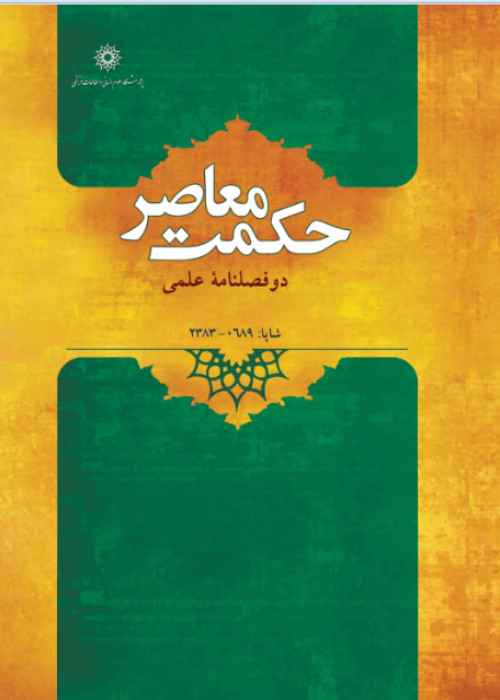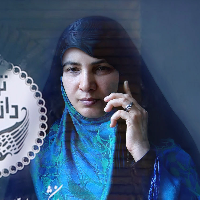The Cognitive Function of the Permanent in Farabi's Point of View
Introduction :
The Permanent or Malekat have multiple functions in the thought of Islamic philosophers. Sometimes they are considered in the principles of actions in terms of temperamental principles, sometimes in anthropological aspects in presenting the criteria or standards of human excellence, and in some cases in the basics of psychological states, desires and tendencies. In Farabi's thought, Permanent States in the Soul or The Permanent are considered at the three levels: thought, feeling and behavior. Talking about logical and Rational Permanent States and paying attention to their noncognitive factors in the formation of beliefs reveals the importance of this study. The role of Permanent States in directing and guiding perceptions as mental states as well as giving meaning and processing information is a significant point when facing the works of Farabi. We cannot ignore the role of habits and Permanent States in the psychological: dimension such as possessions, desires, tendencies, decision, choices, and attention. Therefore, there is a need for an independent research to be conducted the functions of Permanent States, especially their cognitive function. In relation to permanent states in the soul Farabi have spoken about the knowledge that is available in the soul and its differences from other knowledge. This knowledge is imprinted in the mind and affects all our perceptual processes. It seems that according to Farabi's there is an order in thoughts, feelings and actions and Permanent States can explain that order.Farabi places the first philosopher at the head of the society and those who persuade and imagine they are immediately placed after first philosopher. It can be said that one of the most important functions of persuasion and imagination in Farabi's thought is about formation these permanent states.
Statement of the problem and Discussion :
Characteristics such as the "states" (hal), "habits" and The permanents (malekat), "temperaments"(kholgh) are significant to understand Farabie's works. States, habits and temperaments are indexed under the name of characteristics of the soul or psychic characteristics in Farabi's texts. In this research I have focused on the cognition role of "The Permanents" in connection with the mental structure. We try to interrogate the effect of these states on wisdom, intellect, intelligence, good understanding, human attention and decision. Its seems to professional philosophers have almost completely neglected mental aspect of The Permanents as a topic of study. To understand this issue, we reviewed all Farabi's books. Considering this subject, we should paid attention to some questions. How The Permanent organizes the mind and behavior? This is the main question of the study.
Farabi is a great thinker in the history of thought in Muslim philosophers. Passing on their ideas, shows he have significant statements about permanent states in the soul (malekat). In this paper we focused on identifying permanent states in the soul (malekat) involved in capacities such as perception, thought, the representation of analogue magnitudes, social cognition, and intentional action. We use the term "permanent states of the soul" to refer to the "malekeh" in Farabi's statements also we can apply the expression "stable states" or "firm states" or "The Permanents" in order to make us understand the term "mleakeh" in Farabies texts. The Permanents are used in three ways: emotions; behavior and deed (kerdar) and in ethic (Kholgh). These permanent states are interpreted as habits at the level of behavior. Whereas the way of imagination, the type of attention, attitudes, psychological processes and as well as the way of thinking are influenced by these mental characteristics, the central purpose of our investigation is on these states and on the mind structures from Farabi's perspective.
- حق عضویت دریافتی صرف حمایت از نشریات عضو و نگهداری، تکمیل و توسعه مگیران میشود.
- پرداخت حق اشتراک و دانلود مقالات اجازه بازنشر آن در سایر رسانههای چاپی و دیجیتال را به کاربر نمیدهد.



